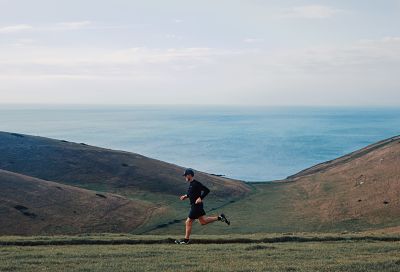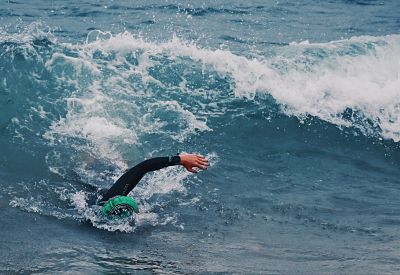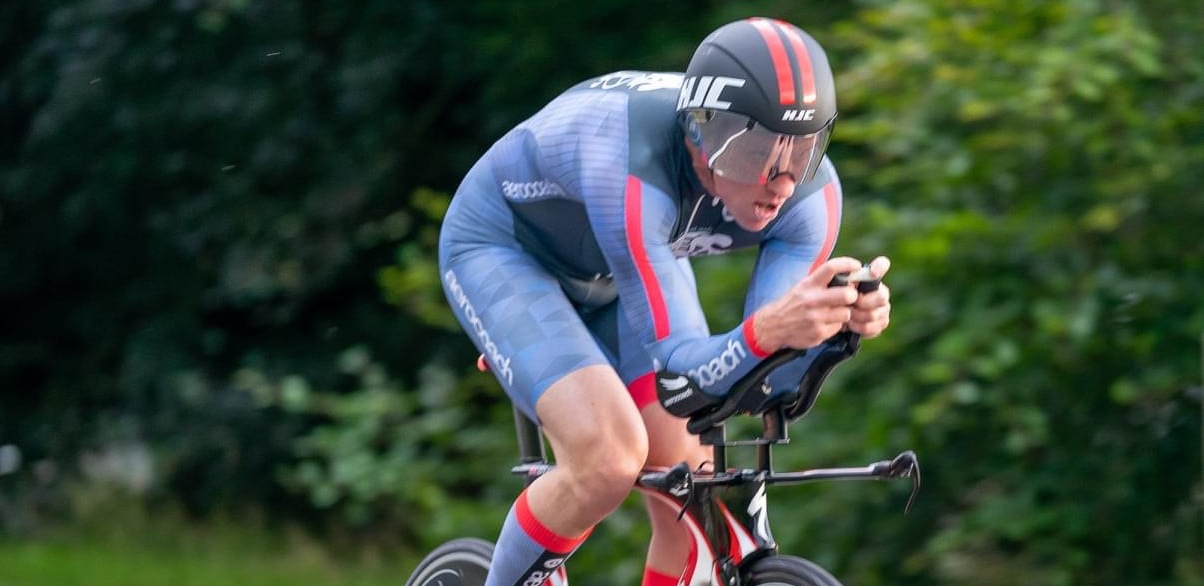I spent some time researching the oldest athletes to have ever competed in professional sport and I was frankly staggered by what I found. Pro boxers at 60, soccer players in their 70’s and if you can believe it, Sobieslaw Zasada, a Polish rally driver, was a whopping 91 and still putting his cars sideways. Hell, you’re as much racing the undertaker as you are the competitors around you by that point.
It’s not so much their results that I find so fascinating though, it’s how and why they manage to keep going for so long. Most of us assume that professional athletes are retired by their late 30’s and the rest of us are hitting the garden centres, rather than racing, by the time we’ve collected our bus pass (although not if you’re Australian equestrian Andrew Hoy – he rocked up to the 2020 Olympic Games at 62!).
So, what can we learn from these athletes who defy old father time? When reviewing the science, there appear to be some consistent reasons as to why some athletes can maintain longevity in their sport…
How to maintain longevity in your sport
Essentially, whilst our physical condition can be good or bad, competitive or recreational, the key component for maintaining longevity seems to be one of establishing and maintaining motivation. You either have it or you don’t and if you’re not motivated, there’s no way you’ll keep going.
There are certain other aspects that have also been proposed to be crucial when having a long relationship with undertaking sport. These are the enhancement of your quality of life, the provision of pleasure, the ability to learn new things and to achieve something of value.

When you consider these, you can probably understand why so many athletes eventually stop or retire because they feel that their quality of life would be better off without the sacrifices needed to be competitive, they’ve nothing left to learn or win, their abilities are fading, or there's nothing of value left for them (other than a legacy they’d possibly rather not tarnish).
With this all in mind, I thought I’d share six key points that I have found, as an amateur four decades in and well over a 1000 races later, that have helped me continue to enjoy the privilege and pleasure that competitive sport can bring year after year...
Set specific, measurable, realistic goals
Goal setting has long been seen as a successful means of obtaining what you’re after. Setting specific objectives provides a much better or clearer path to achieving them than when not having them at all.
For me personally, being both a self-professed nerd and gadgetry magpie, this is where I find that technology helps me. I use a lot of software to track my progress. On any given day, I have a pretty good idea of what my training load is, what kind of session works best and when I’ll peak. I can also take my current abilities, input them into virtual race simulations and have a pretty decent target to aim at.
Granted, this is not everyone’s cup of tea but I find this objectivity and honesty keeps me grounded and allows me to review how it went afterwards when the red mist of competition has evaporated but the subjectivity of your emotions can still run high.
Write stuff down, log data, reflect on it.
Enjoy the journey, not just the destination
One of the best results I’ve ever had was a medal at the Masters National Track Championships a decade ago. I’m a better athlete now than I ever was then but I planned and executed a great training plan, didn’t drop a session and my training data did everything it should.
It wasn’t a perfect race by any means but in broad terms, seeing the gains, learning new skills and watching it happen before I'd even left the start gate provided enormous satisfaction… in an event that took less time to complete than you’d spend eating an energy gel.
Sometimes a great holiday is the excitement you have on the boat ride to get there.

Experiment
I intentionally change the races I do from year-to-year. This keeps the training cycles and sessions different and avoids repetition or routine.
I also always choose a few events that are a little out of my comfort zone or seemingly new or beyond my abilities. For example, I took a year out of cycling in 2015 to race stand-up paddleboards and came back a year later with a refreshed outlook.
This year I’ve been racing in gravel races, which physiologically speaking would probably suit my cat better than my physique, but the scenery I’ve witnessed and the friends I’ve made along the way have broadened my perspective beyond just that of staring at my power meter in the lab.
Additionally, sometimes even elite athletes try new things once they had retired from their first sport of choice to continue their relationship with sport. For example, rower James Cracknell dabbled in triathlon and marathon running, cyclist Laurent Jalabert competed in long-distance triathlon and footballer Rio Ferdinand even tried boxing. These are all tough sports (and they could have chosen easier ones) but were rewarding to them nonetheless.
Develop and maintain your support network
An interesting study I read recently stressed several consistent strategies that masters athletes have used to enhance their psychological performance. One point that jumped out to my eye that will contribute to longevity is ensuring you have a support network around you that buys into and supports what you’re trying to do.
We’re not all socialising with Olympic gold medallists or married to world champions but if you work at communicating with your friends and family, helping them buy into your passions mean you won’t feel like it’s a 'you vs. them' choice in the end.
Maintain the machine
When you listen to the best coaches and sports scientists with respect to your chosen sport, there's always an emphasis on specificity (i.e. the sessions you do should be tailored to your goals).
As a result, you wouldn’t expect a horse jockey to be too worried about their deadlift max any more than a swimmer would be with their 5km running time. However, as we age, this specificity is worth expanding in the broader sense of staving off the impacts of aging.
It’s no longer just about your sport but also your ability to remain injury-free or to combat the natural degradation in muscle mass or your VO2 max. Whilst you might not have considered strength training that relevant to your sport 10 years ago, you might be wise considering it in the future as this has been shown to provide a superb countermeasure to the loss of functional strength and reduction in muscle fibres that we’ll all be impacted by.
Likewise, doing more work of a higher intensity may help shore up your VO2 max. These may help underpin your sporting performances increasingly as you get older and help keep you competitive against those around you.

...and have fun
I found this one slightly hypocritical for me to write down… or at least my own family would think so as I seemingly exude the charisma of the Terminator and the emotional range of a pair of socks when building up to my targeted events.
The use of ‘play’ and ‘fun’ though is integral to doing sport – or frankly of anything we value.
Scientifically speaking, it has been proposed that if the characteristics of fun and play are undertaken, athletes are encouraged to express their real and authentic personas.
In essence then, having fun is underpinning our own wellbeing – and that’s an important factor we probably should remain aware of. At the 2020 Olympic Games, gymnast Simone Biles exhibited frankly gargantuan levels of strength of character to publicly pull out of her pursuit of several (likely) medals and prioritise her wellbeing instead – the demands having become too great and too damaging.
I’ve read a lot of interviews with aging athletes like mountain biker Ned Overend and he uses the word ‘fun’ a lot. It’s either having fun in winter cross-training, having fun applying certain skills or having fun on certain rides... and this is an athlete still competitive in his 60’s. It can’t be a coincidence that he still wants to put the work in and can keep going when his best period was arguably nigh on 30 years ago.
However, at the end of the day, the one piece of advice I can offer is actually not to follow this list of points at all. What you need to keep you engaged in competitive sport will likely be different to me and different to the findings in the peer reviewed studies that have explored these issues.
Remaining aware, vigilant and flexible to what you physically, psychologically and emotionally need, will likely keep your relationship with sport healthy, productive and ultimately long-lasting.
